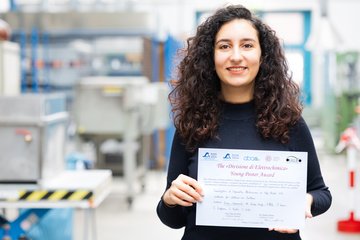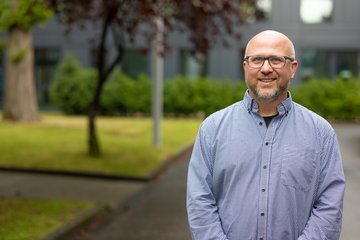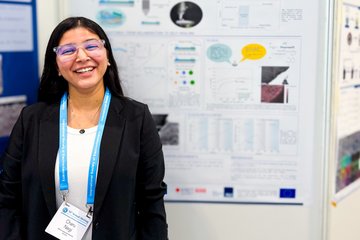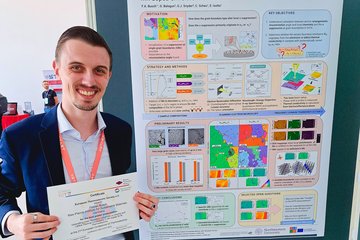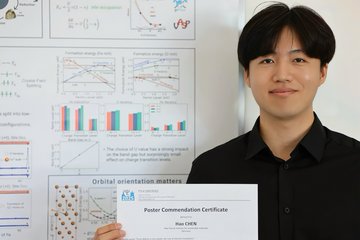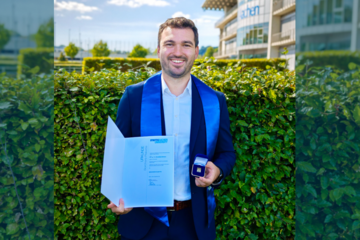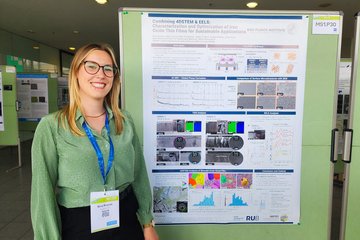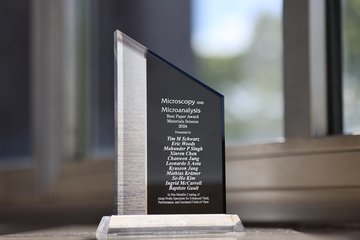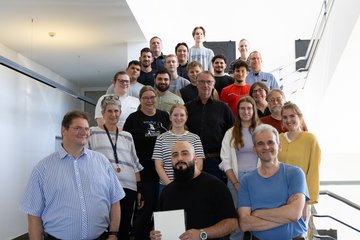All genres
21.
Journal Article
Corrosion of alloy 600 in a carburization furnace. Materials and Corrosion-Werkstoffe und Korrosion 52 (7), pp. 546 - 551 (2001)
22.
Journal Article
Mechanism and prevention of metal dusting. Stainless Steel World 2001, pp. 37 - 43 (2001)
23.
Journal Article
Mechanisms and prevention of corrosion in carbonaceous gases. 5th Int. Symp. on High Temperature Corrosion, pp. 101 - 108 (2001)
24.
Journal Article
Surface and interface reactions and diffusion during the high-temperature corrosion of metals and alloys. Defect and Diffusion Forum 194 - 199, pp. 1649 - 1660 (2001)
25.
Journal Article
Hydrogen in microalloyed steels. Steel Research 72 (5-6), pp. 225 - 235 (2001)
26.
Journal Article
Metal dusting exposures of modified stainless steels. 5. Symp. on High Temperature Corrosion, pp. 955 - 962 (2001)
27.
Journal Article
Surface treatment and cold working as tools to improve oxidation behaviour of chromium steels. 5th Int. Symp. on High Temperature Corrosion, pp. 319 - 326 (2001)
28.
Journal Article
The role of fast diffusion paths in the selective oxidation of chromium steels. Defect and Diffusion Forum 194-199, pp. 1689 - 1694 (2001)
29.
Journal Article
Influence of surface preparation on the corrosion of steels in simulated waste incineration environments. Materials Science Forum 369-372, pp. 963 - 970 (2001)
30.
Journal Article
Diffusion of 51Cr in a cold-rolled 18Cr8Ni-steel. Defect and Diffusion Forum 194-199, pp. 1239 - 1246 (2001)
31.
Journal Article
Formation of chromium rich oxide scales for protection against metal dusting. Materials at High Temperatures 17 (2), pp. 339 - 345 (2000)
32.
Journal Article
Coking by metal dusting of steels. Materials and Corrosion 50 (11), pp. 614 - 621 (1999)
33.
Journal Article
Effects of grain size, cold working, and surface finish on the metal-dusting resistance of steels. Oxidation of Metals 50 (3-4), pp. 241 - 254 (1998)
34.
Journal Article
Metal dusting of nickel-based alloys. Materials Performance 37 (7), pp. 58 - 63 (1998)
35.
Journal Article
Protection of high alloy steels against metal dusting by oxide scales. Materials and Corrosion-Werkstoffe und Korrosion 49 (5), pp. 317 - 320 (1998)
36.
Journal Article
Metal dusting of nickel-base alloys. Materials and Corrosion-Werkstoffe und Korrosion 49 (5), pp. 328 - 329 (1998)
37.
Journal Article
Influence of H2S on metal dusting. Materials and Corrosion-Werkstoffe und Korrosion 49 (5), pp. 336 - 339 (1998)
38.
Journal Article
The role of chlorides in hot corrosion. Molten Salt Forum 5-6 (1998)
39.
Journal Article
Fe–Cr–Si-alloys with enhanced resistance against high temperature corrosion in the presence of molten sulphate/chloride mixtures and HCl containing gases. Molten Salt Forum 5-6, pp. 441 - 446 (1998)
40.
Journal Article
High temperature corrosion of low and high alloy steels under molten carbonate fuel cell conditions. Materials and Corrosion-Werkstoffe und Korrosion 48 (8), pp. 477 - 488 (1997)
